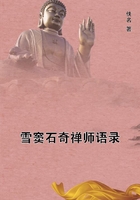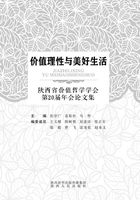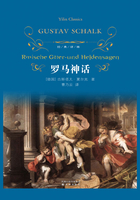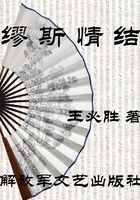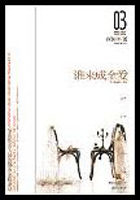THE ROAD TO ROME
Canisius kept Stanislaus at his work in the kitchen and about the house for a couple of weeks. He noted his cheerfulness, his love of prayer, his readiness to do any sort of work, and best of all, his simplicity, his entire lack of pose. He saw that this Senator's son made no virtue of taking on himself such lowly tasks, and he knew, therefore, that he was really humble.
Then he called the boy to him. He said:
"If I admit you into the Society here, your father may still annoy you. It is better you should go to Rome and become a novice there. I shall give you a letter to the Father General, Francis Borgia. In a few days two of ours are to go to Rome. You can go with them."
Stanislaus was delighted. He was come into quiet waters at last. But Canisius spoke further:
"First, however, you must get some decent clothes. Your old tunic," he said, with a twinkle in his eye, "might do well enough for a noble, but not for a future Jesuit."
So the college tailor made Stanislaus a simple, neat suit of clothes. And about September 20th he set out for Rome. He went on foot, of course; in the company of Jacopo Levanzio, a Genoese, and Fabricius Reiner, of Li 間e.
They struck south through Bavaria to the Tyrolese Alps. By what pass they crossed the Alps we do not know. But Stanislaus saw first from afar the white peaks, with their everlasting snows, shining in the sun. Then he went up and up, into cooler and rarer air, where one's lungs expand and one's step is light and buoyant, but where one gets tired more easily than in the plains. High up in the passes he felt the cold of Winter, although it was as yet earlyAutumn.
Then he came down the southern slopes of the great mountain-wall that locks in Italy, and with him came the headwaters of great rivers. He came down through bare rocks, then through twisted mountain-pines, then through green and lovely valleys, and so into the plains of northern Italy. He saw the mountain torrents leap and flash, and grow always bigger and stronger. He saw them slack their speed and widen their beds in the upland valleys. He saw them grow sluggish, tawny with mud, in the plain.
He saw the many spires of Milan's wonderful cathedral as they drew near the city. And when they tarried there a little while for rest, he saw the famous armor made there, hung up for show in little shop- windows. He passed great cavalcades of nobles and soldiers, and marvelled at their straight, slim rapiers, so different from the heavy Polish saber. He heard Italian speech for the first time, and tried to get at its meaning through his Latin.
But he and his companions had not over-much time for observing. They were traveling pretty swiftly. From Dillingen to Rome is a matter of about eight hundred miles. They left Dillingen September 20th; they reached Rome October 25th. That figures out to an average of about twenty-two miles each day. Then, if you remember that they had to climb mountains the first part of the way, that there were delays entering towns, delays of devotion when they came to great churches, you can see that many a day they must have equaled or surpassed Stanislaus' thirty miles a day from Vienna.
But it was pleasanter. for Stanislaus than his first great tramp. Now he had two good companions, with whom he could speak easily and familiarly of the things nearest his heart. He had none of the uncertainty about the result of this journey which he had had about his former journey. He found shelter and friendship in many Jesuit houses on the way.
As the three went on they lightened the road with pious songs, they heard Mass and received Holy Communion whenever occasion offered, they knelt by many a wayside shrine, a crucifix, or statue of our Lady, scattered everywhere through Catholic Italy.
It did not take the two Jesuits long to appreciate Stanislaus and delight in his company. He was so light-hearted, so merry in all the discomforts and hardships of the long road, so thoroughly and simply good. They wondered at his physical endurance, at the ease and buoyancy with which the lad of seventeen kept up that hard march, day after day.
The grasses of the Campagna were brown and brittle, the trees sere and yellow in the Autumn, when they came to the Eternal City, the center of the world then as now. The saintly General Francis Borgia, busy as he was with the cares of the widespread Society, found time to welcome the three travelers, and to hear Stanislaus' wonderful story in full.
And this time there was no hesitation or delay. Stanislaus entered his name in the book containing the register of the novices, on October 25, 1567. Three days later he received his cassock and entered at once upon his noviceship.
There were so many novices in Rome then that no single house of the Jesuits there could hold them all. So they were scattered through three houses, each one spending a part of his two years' noviceship successively in each house. Stanislaus went first to the Professed House, then called Santa Maria della Strada, and afterward the site of the famous Gesu, one of the notable churches of Rome. From there he passed in time to the Roman College, then to the Noviciate proper at Sant' Andrea.
The Society of Jesus was then in its early youth, in the midst of that first brilliant charge against the ranks of heresy without, and against the huge sluggish inertia so striking within the Church itself.
He was fellow-novice with Claude Acquaviva, son of the Duke of Atri, and afterwards one of the greatest Generals of the Society, which he ruled for thirty years. With him were also Claude's nephew, Rudolph Acquaviva, who died a martyr; Torres, a great theologian; Prando, the first philosopher at the University of Bologna; Fabio de' Fabii, who traced his descent from the great Roman family of that name; the Pole, Warscewiski, formerly ambassador to the Sultan and Secretary of State in Poland, who first wrote a life of Stanislaus; and many more, distinguished for birth, learning, holiness.
Most of these were a great deal older, too, than Stanislaus. Many of them had already made their names familiar to men. Yet the boy of seventeen, who came quietly and modestly amongst them, was somehow soon looked up to by all. They felt the force of something in him which made him their superior. Heaven was wonderfully near him. He was not old-fashioned; he was always a boy, unconscious of anything unusual in himself; not solemn nor impressive nor austere in manner. All that he did, he did with perfect naturalness; for to him the supernatural had become almost natural.

